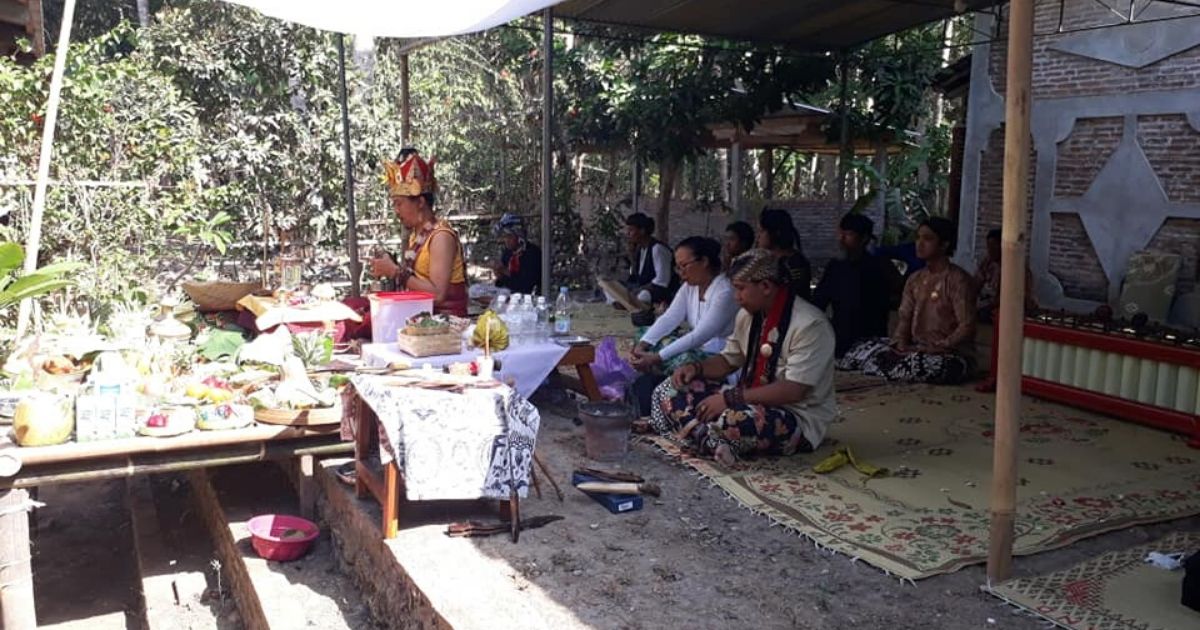Yogyakarta has seen a rise in religious intolerance over the last few years, and the latest instance took place just yesterday. A Buddhist and Hindu prayer ceremony in Mangir Lor village, Bantul regency was cancelled mid-event as it was allegedly shut down by the village residents.
According to Mangir Lor village chief Lha Lha Setiawan, the residents accused the organizers, a religious group named Paguyuban Padma Buwana, of “deviating from religious teachings.”
“That was said by someone from the Religious Affairs Ministry during a mediation at the sub-village office [in 2018]. What’s clear is the ritual had been participated in by believers of several religions, but they performed the ritual of one religion,” Setiawan said yesterday, as quoted by Tirto.
The ceremony was held at the home of Utiek Suprapti, a village resident belonging to the Hindu minority and also head of the religious group. Setiawan claimed that Utiek had signed a statement back in 2012, in which she said she wouldn’t conduct any ritual ceremony without permit.
In spite of that, she still held a number of ceremonies since, inviting people from other regions without permission from authorities in the village. According to Setiawan, this went on until the mediation in 2018.
On Monday, Mangir Lor village residents reported Utiek to the local police upon finding out about a planned ritual ceremony. Setiawan said the residents were on standby near Utiek’s house when the police arrived to stop the ceremony.
However, Bantul Police Chief Wachyu Tri Budi denied that the prayer ceremony had been interrupted by anyone.
“No one stopped the activity at Ibu Utiek’s place. Evidently, the activity was still carried out by Ibu Utiek. There was indeed a question from the residents if there was any permit to establish [her house] as a place of religious ceremony or religious activities,” Wachyu said.
In contrast to Setiawan and Wachyu’s separate statements, Utiek said she has already received a permit from authorities. She explained that the villagers started to surround her house at around 3pm during the first session of the ceremony.
“I have the authentic proof of signatures from my neighbors from the left and right [of my home], and it’s also been signed by the neighborhood chief,” Utiek told Tirto, as she reportedly showed the signed permit.
She said this wasn’t the first time a ceremony was interrupted by the villagers, alluding to what happened previously in 2012. She said her group has been rejected by a certain community organization.
“We were suspected of berhala [worshipping anyone or anything besides God] Those who demanded us to cancel the event [in 2012] were the same people,” Utiek told Tempo yesterday.
Utiek explained that the ceremony, which is rooted in the Balinese Hindu tradition, was held to commemorate the death of her ancestor, who was a Hindu religious leader. Her home has also become a pilgrimage destination for several Hindus from Bali.
Yogyakarta is sadly no stranger to religious discrimination. In April, the residency of a Catholic man and his family in a hamlet of Karet in Bantul was opposed by the residents on the grounds that he’s not a Muslim.
He later found out that the hamlet had a regulation in place prohibiting non-Muslims from residing in the community, which was passed in 2015. The man was initially allowed to stay only for six months, but the discriminatory regulation has finally been removed thanks to his effort.
In December of last year, Muslim residents in the city forced a family to saw off a wooden cross-shaped grave marker belonging to their recently deceased loved one, on the grounds that they had plans to turn the cemetery into a Muslim-exclusive burial area.





Reader Interactions